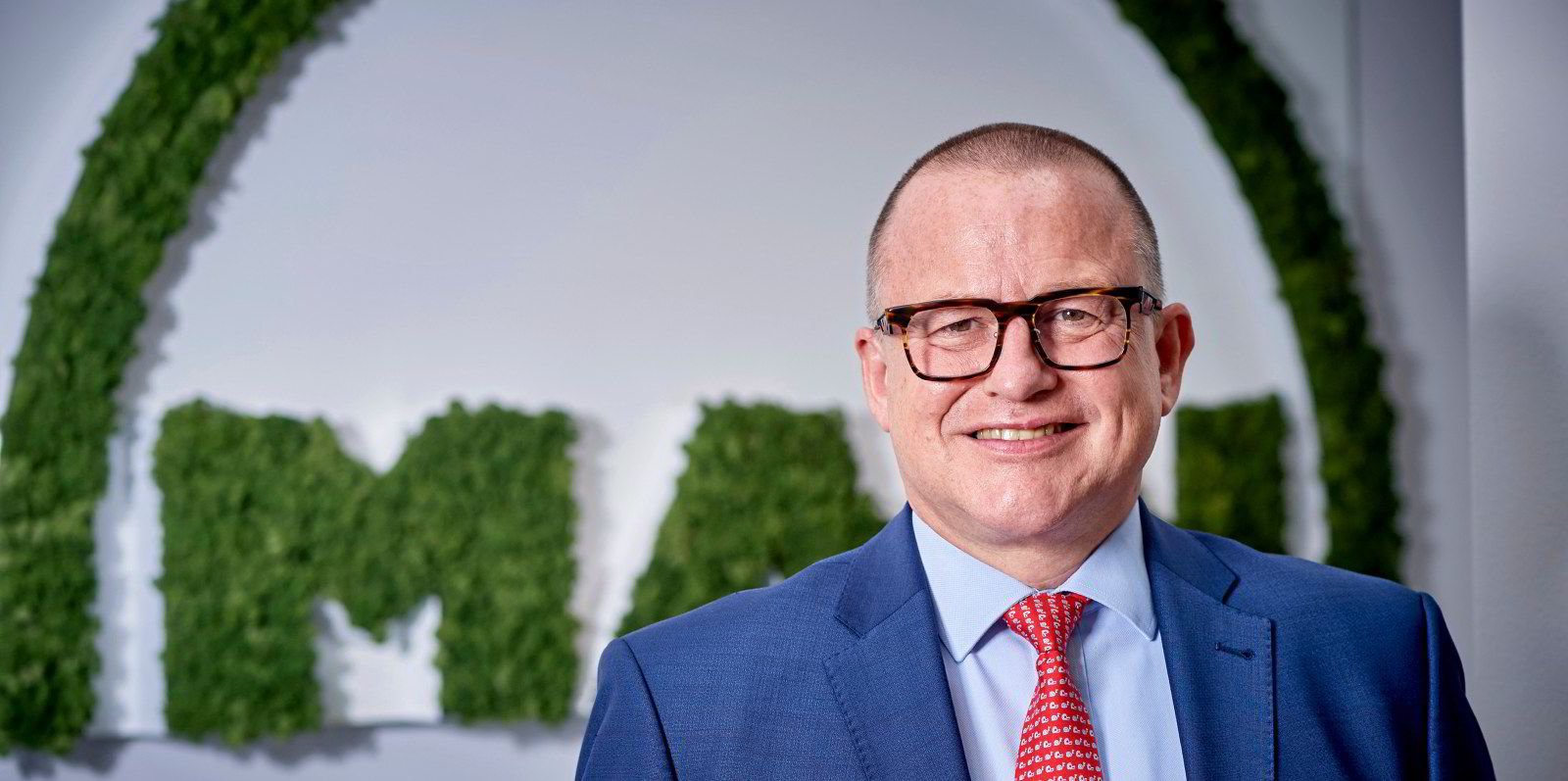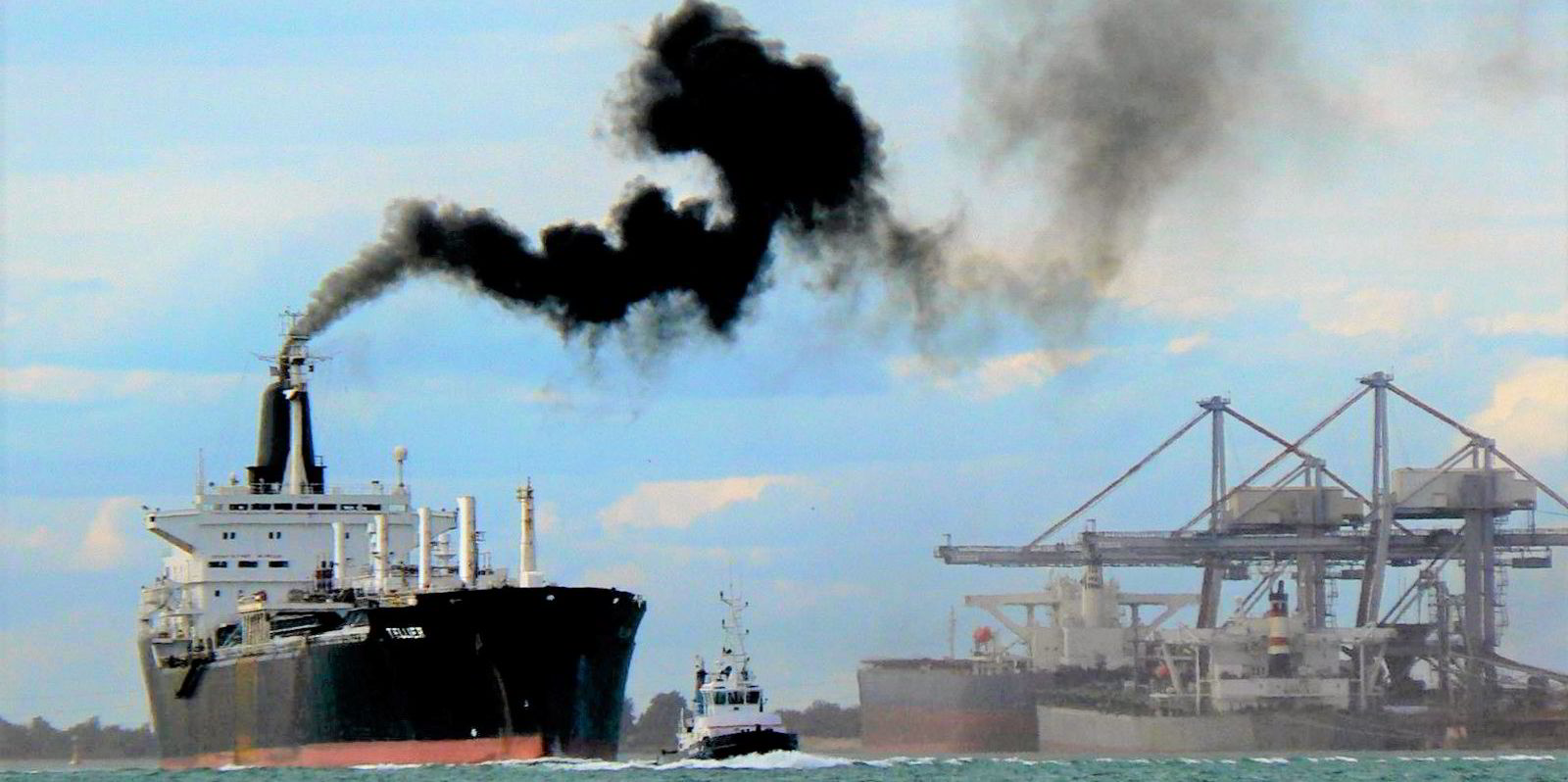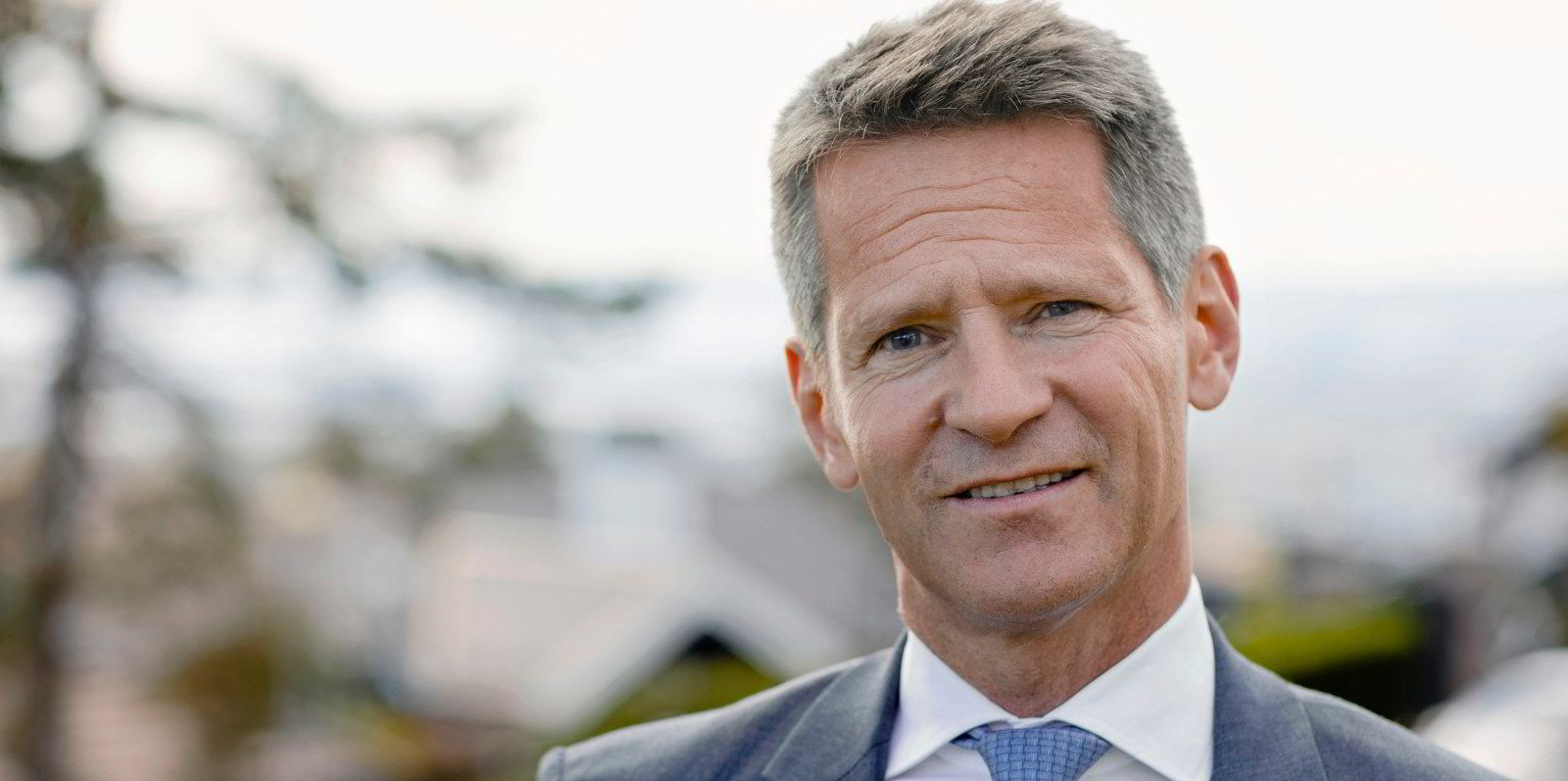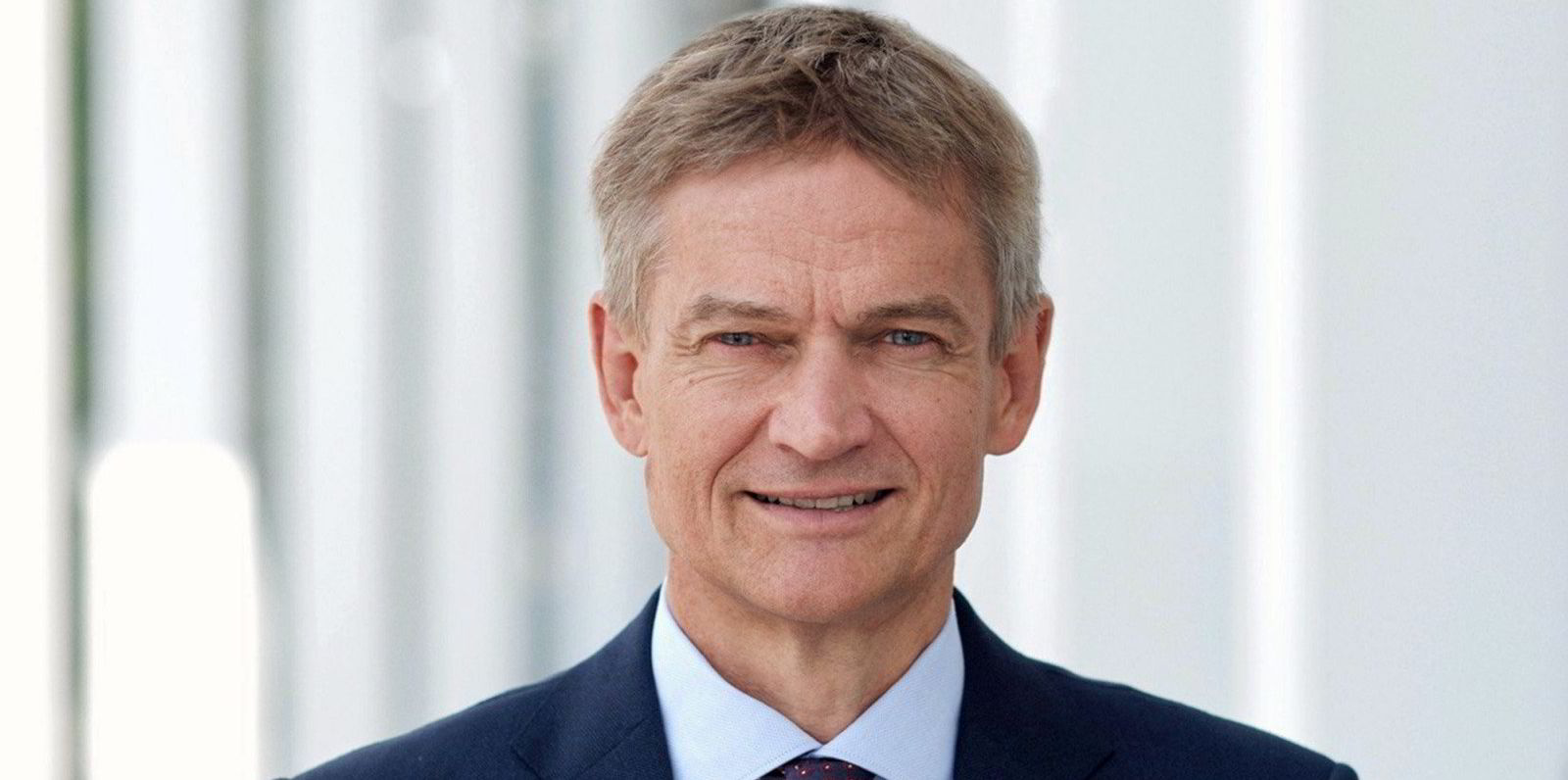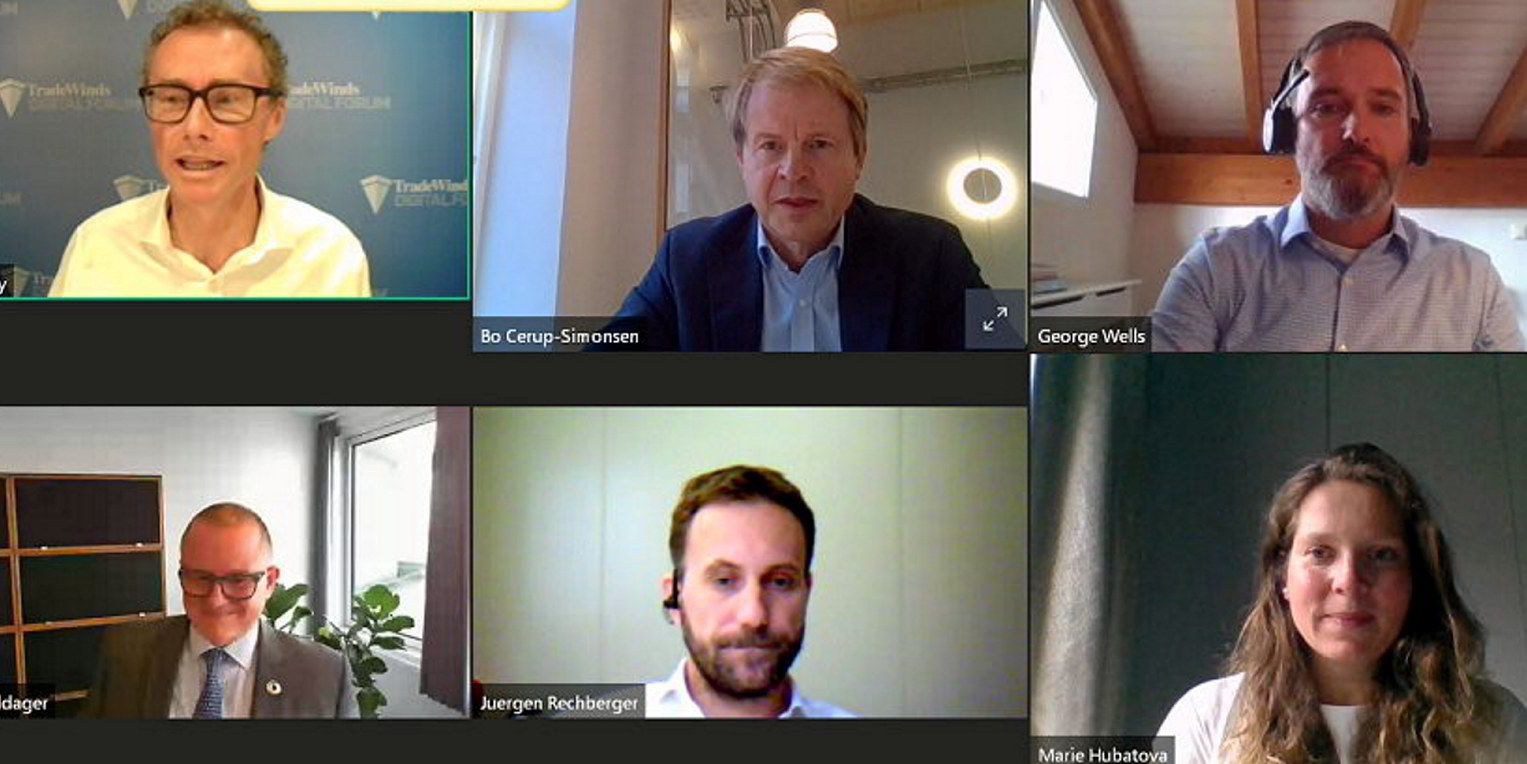Measures to clean up shipping agreed by the International Maritime Organization are not a panacea for all shipping's carbon ills.
That is the message from Bjarne Foldager, head of two-stroke business at MAN Energy Solutions, who was speaking on a TradeWinds webinar about future fuels.
There has been a mixed reaction to the IMO's proposals, including the introduction of the Energy Efficiency Existing Ship Index (EEXI) from 2023 that requires existing ships to match the fuel efficiency of newbuildings.
Foldager said: "I share a level of disappointment." But he added that the EEXI was a big positive.
"This should not be underestimated," Foldager added. "Here, we will make the building blocks for the future, the future zero-carbon ship."
Every little bit helps
The executive said that future green fuels will be expensive, compared with the very cheap oil available now, so anything that owners can do to save just 1% or 2% of emissions "can help us tremendously because it's then amplified by the more expensive future fuel".
He added: "We cannot expect IMO to solve all our problem for us, we have to do it ourselves."
However, Marie Hubatova, manager of international climate at the Environmental Defense Fund, said the results of the IMO meeting were "quite disappointing" and represented business as usual.
But she added she was looking on the bright side and found it "really positive" that the Marshall Islands was taking the lead on looking longer term at issues such as carbon pricing.
Clarity achieved
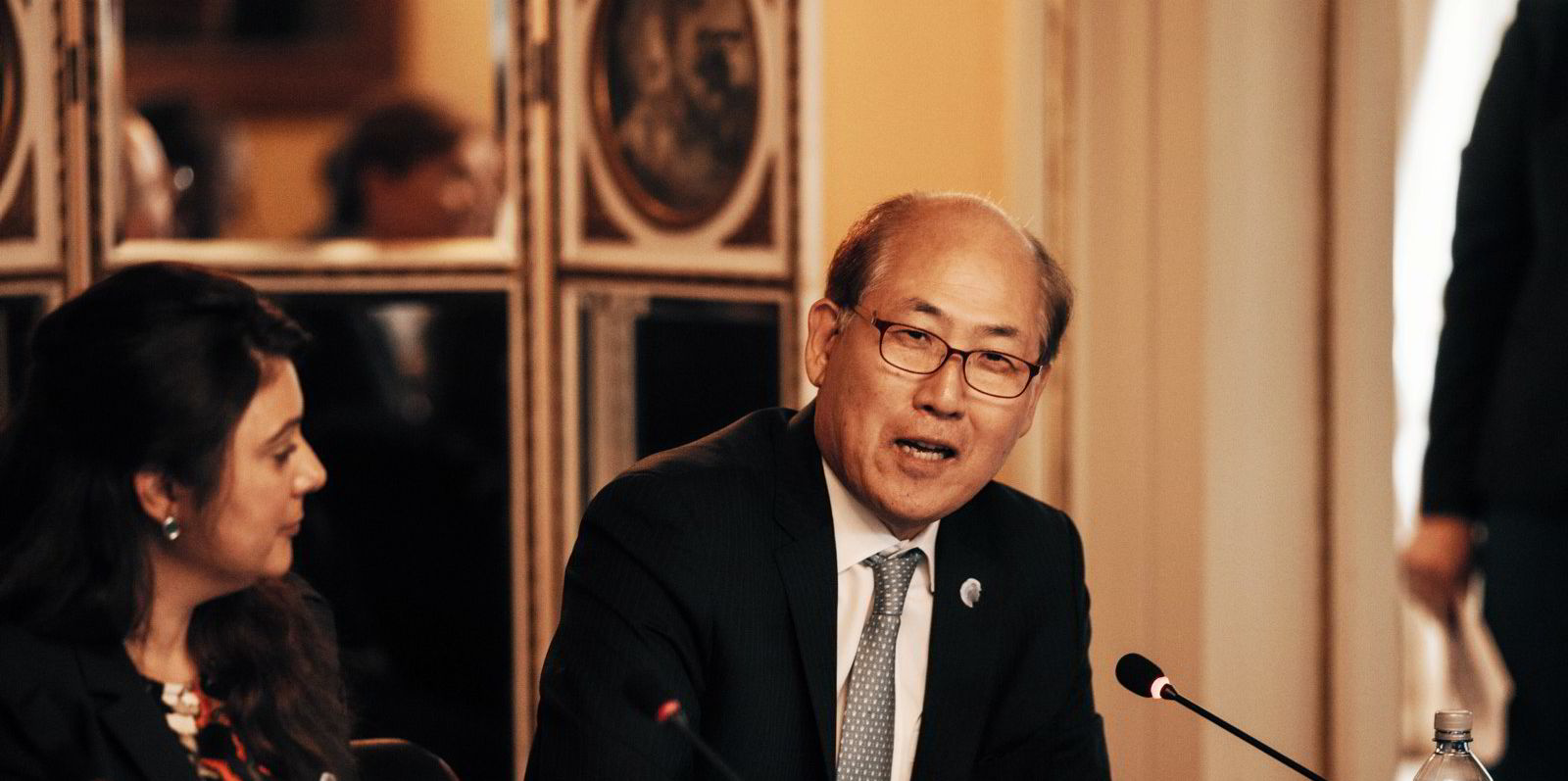
George Wells, global head of assets and structuring at Cargill Ocean Transportation, said the meeting clarified how far the IMO can push the consensus.
This was "not as far as some member states would like to go", he added, saying that this meant we are likely to see more regional carbon reduction schemes coming into play, especially in Europe.
He believes the outcome of the talks placed more onus on the industry to come up with its own solutions to drive change forward.
Heading in the right direction
Juergen Rechberger, head of hydrogen, fuel cells and power-to-X at Norwegian technology company Teco 2030, found the proposals went in the right direction and were not too aggressive.
But he said Teco 2030's work on hydrogen cell projects are currently more important than regulation for the company.
Asked to predict how shipping will look in 2030, Bo Cerup-Simonsen, chief executive of the Maersk Mc-Kinney Moller Center for Zero Carbon Shipping, said that "the fog will clear".
"We will see dramatic changes," he added. "So let's keep the pressure on IMO and make sure next year we get real progress on mid to long term measures."
The CEO forecast that by 2030, existing vessels will be retrofitted to increase energy efficiency and new ships will be built with "multi-fuel" capacity.
TradeWinds has reported that the new measures adopted by the IMO mean tankers and bulkers over 12 years old will have to improve fuel efficiency by up to 20% to comply with new efficiency standards for existing ships.
